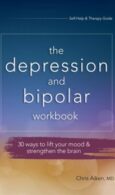Lifestyle Strategies for Mood
Balancing Mood Through Lifestyle Choices
Check Your Lifestyle for Mood
There are 5 key lifestyle factors that help you maintain a stable mood throughout the day:
- Sleep restores chemical balance, repairs damage to muscle tissue, detoxes the brain, processes memories and stores those that are significant in your long-term memory. During the night the brain breaks down serotonin to create the powerful brain chemical melatonin. This chemical is the key to getting a good night’s sleep. Its production is triggered by darkness and turned off again by light striking the eye. Serotonin and melatonin work together to create your all-important sleep–wake cycle. Most people with Bipolar Disorder will struggle to regulate their sleep-wake cycle (their circadian rhythm).
- Food has a direct and immediate effect on your internal body and brain chemistry. What you eat can elevate your seretonin levels or cause and adrenalin spike. Sudden and irresistible food cravings are a sure sign that your brain is trying to manufacture more serotonin.
- Activity has both a foundation and a trigger effect. A good fitness level provides a stable foundation for managing pressure with less adrenalin. Certain exercises boost the production of serotonin for good calm vibes. And rigorous exercise helps to burn off excess cortisol (our stress hormone) when times are tough. Regular exercise will give you more energy, improve your sleep, increase your stress threshold and stabilise your blood sugar.
- Thinking influences body chemistry profoundly. If you are scared, adrenalin kicks in. If you are sad, serotonin levels are decreased. It’s essential to listen to your inner dialogue if you want to pursue a naturally stable mood.
- Stress throws your chemistry out of balance, but you can improve your tolerance to it. Recognising your response to stress and acting appropriately is crucial to avoiding burnout and crashes.
Sleep
- Does it take you about 20 minutes to fall asleep at night?
- Do you have a wind down strategy to help switch on your soothing system and help generate melatonin production?
- Do you go to bed and and wake up at pretty much the same time every day?
- Do you track your sleep hours and notice when there are shifts?
- Do you wake up feeling rested?
- Are you getting at least 6-8 hrs a night regularly?
Food
- Do you drink at least 8 glasses of water a day?
- Is your diet a balanced mix of protein, carbs and fat?
- Are you eating protein at every meal?
- Are you taking nutritional supplements for mood?
- Do you eat consistently at the same time each day, at least 3 – 5 meals across the day?
- Do you follow an anti-inflammatory based diet?
- Do you limit your caffeine and alcohol intake?
Activity
- Do you exercise at least 3 times a week of moderate to high intensity?
- Do you seek out incidental activity where possible?
- Do you take at least 10,000 steps a day?
- Is exercise a habit for you?
- Do you exercise in the morning and outdoors when possible?
- Do you get enough natural sunlight every day?
Thoughts
- Are you aware of your self talk and its effect on your mood?
- Can you challenge negative or unrealistic thoughts?
- Do you take responsibility for what happens in your world?
- Are you optimistic about the future?
- Do you think well of yourself?
Stress
- Are you able to manage stress in your day to day activities?
- Do you have an effective stress management plan day to day?
- Do you have an effective relaxation strategy to wind down at the end of the day?
- Do you know how to breathe and turn off your flight/fight response when you need to?
Essential Nutrients for Mood
Our mood is not only affected by the quality of our diet but can also be influenced by our body’s nutritional balance. If we are low in essential nutrients it will greatly impact our body’s ability to produce mood-lifting hormones and neurotransmitters. Additionally, an excess intake of certain nutrients can adversely affect our mental health. Although all nutrients are likely to have an influence on our mental health, some of the primary nutrients are listed below:
- B-vitamins – these have hundreds of roles in the body and low levels of most B-vitamins have been found in people with depression and anxiety. Vitamins B3, B6, and B12 are particularly important for mental health.
- Folate – while this is a type of B-vitamin (vitamin B9) it is often discussed separately to the other B-vitamins. Folate is often low in people with depression, and supplementing with folate may have a positive effect on mood. Some people have genes (known as a polymorphism) that reduce their ability to convert folate into its active form in the body. This disturbance is called a methylenetetrahydrofolate reductase (MTHFR) polymorphism. Folate needs to be converted into its active form to be used by most enzymes in the body.
- Magnesium – this mineral is essential for the activity of hundreds of enzymes in our body. Low magnesium levels have been found in people with depression and anxiety. Magnesium levels may be low due to a low dietary intake, although high stress (physical or mental) can also reduce magnesium stores. Magnesium supplementation can also have positive mental health effects.
- Zinc – this is another mineral required for hundreds of enzymatic reactions in the body. Low zinc levels have been found in people with depression. There has not been a lot of research investigating the effects of zinc supplementation on mood, although given its multiple roles in the body, having adequate levels is likely to be important.
- Omega-3 fatty acids – this nutrient is derived mostly from fish but is also found in nuts and seeds. There has been a great deal of research examining the role of omega-3 fats on mental health with most of it confirming its crucial role. Lower omega-3 levels have been found in people with depression and other mental health disorders. Most of the clinical trials investigating the effects of supplementation with omega-3 fish oil have been positive. To function well, the brain needs a steady supply of long-chain, polyunsaturated fatty acids. The problem is most of our diets are too high in one kind of this fat (omega-6) and deficient in another kind (omega-3). The serotonin receptors are composed of an omega-3 fatty acid called DHA. An imbalance of omega-6 and omega-3 fatty acids can damage the receptors and is implicated in severe depression. Regular consumption of DHA keeps cell membranes more fluid, so that serotonin has an easier time making its way into the brain and working its magic.
- Iron – low levels of iron can affect energy levels as it is required for the transport of oxygen throughout the body (it is a component of haemoglobin, the oxygen-carrying protein in red blood cells). When iron levels are clinically low, a diagnosis of iron-deficient anaemia results. Children, menstruating women, and older age adults are more susceptible to low iron levels. People on vegetarian diets are also at increased risk of low iron levels.
- Vitamin D – deficiency of vitamin D, which is mainly derived from the sun, can have a negative effect on mood. Low levels have been found in people with depression and may increase the risk of seasonal depression (often referred to as the winter blues).
- Protein/ amino acids – when we eat protein our body breaks it down into amino acids. Amino acids are the building blocks of mood-lifting neurotransmitters such as serotonin and dopamine. In particular, the amino acids tryptophan, tyrosine, and phenylalanine are important for mood. Research has shown that if you expose a person with a history of depression to a diet low in tryptophan (required for serotonin production), it significantly increases his or her risk of relapse.
These are the primary nutrients that can affect our mental wellbeing, although this list is not exhaustive. Being deficient, or having excess levels of most vitamins, minerals, fats, and amino acids, are likely to affect our mental and physical wellbeing. Other nutrients of note include copper (excess levels in particular), selenium, coenzyme-Q10, vitamin E, and calcium.
Downloads
Diet, Nutrition & Mental Well Being
Evidence Based Supplements for Mood
How to Increase Serotonin Naturally








